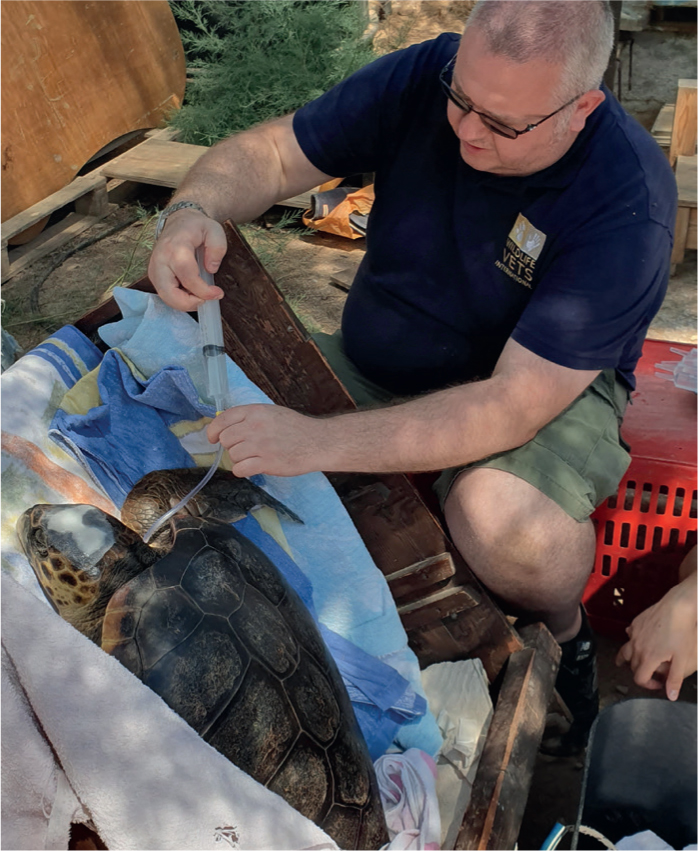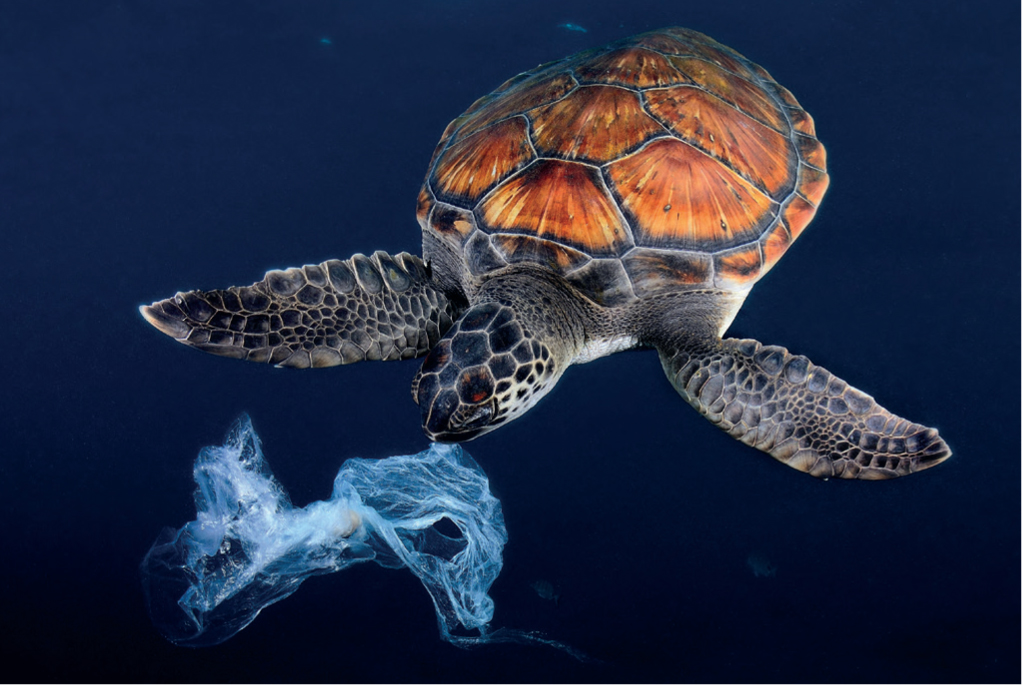To raise the profile of the plight of sea turtles and marine plastics London Vet Show donated their recycling stand to Wildlife Vets International for us to rebrand. Did you see us? We couldn't make the stand out of anything plastic without a very good reason and so the majority of the stand was printed on to card-board. It will be used again and then safely recycled. We spoke to hundreds of delegates at the show about the sea turtles and the other WVI projects around the world. It was very clear and reassuring that as the veterinary professions we are becoming more aware of what veterinary conservation looks like, how best it should be carried out, and that we must use vets and veterinary nurses who have the knowledge, understanding and clinical skills that enable them to hit the ground running and make a positive impact

I have been working with Wildlife Vets International this year to establish protocols and treatment plans for loggerhead sea turtles (Caretta caretta) that have traumatic injuries, sometimes secondary to subclinical ingestion of plastics, which debilitates the turtles and can cause them to get hit by boats, or due to weakness are more likely to get tangled up in abandoned fishing nets and tackle. Myself and Tania Monreal (a WVI vet who is an expert in sea turtles) have been working with two turtle rescue centres in Europe on establishing key protocols such as multimodal analgesia, anaesthesia, nutritional support, wound management, fluid resuscitation and blood sampling to enable a manual WBC to be carried out. All of these aim to improve the prognosis for these amazing, beautiful animals and always aiming to getting them back in to the wild as soon as possible, important to be mindful that this must be the key aim of all good rescue centres or any species.
I feel incredibly humble and honoured to be using my nursing skills to help these wild animals, but I am always mindful that we all must do our bit to mitigate the cause of the turtles getting injured in the first place, reducing (with a view to completely phasing out) single use plastics would be a very good place to start. As the veterinary professions we need to do more in our practices to reduce the amount of single use plastics we use and recycle as much as possible, we must all do our bit. On a positive note, at the London Vet Show we had some examples from companies that are already going above and beyond to make a difference. E6PR have developed compostable six pack drinking can holder with rings made from wheat and grain left over from the brewing process. Kingspan insulation are working with a network that collect marine plastic from the Mediterranean and give it a new life in their ground-breaking insulation, these are hugely innovative ideas and we need more.

This Christmas, please be mindful of needless plastic, make sure it is all disposed of properly, seek alternatives and if giving to charity, please consider donating to Wildlife Vets International.
In partnership myself and the rest of the WVI team will continue to provide the expert wildlife veterinary support to those saving endangered species every day.


